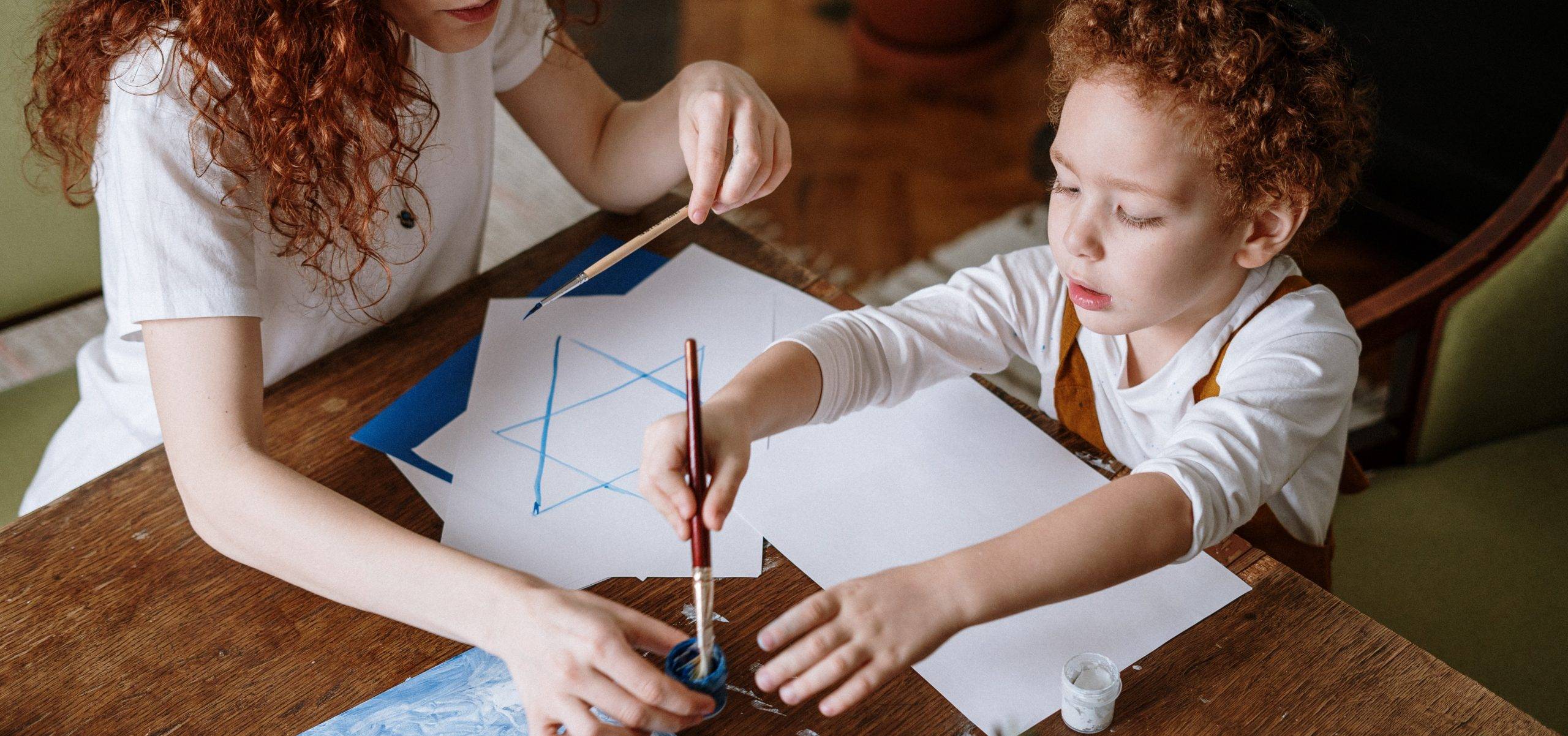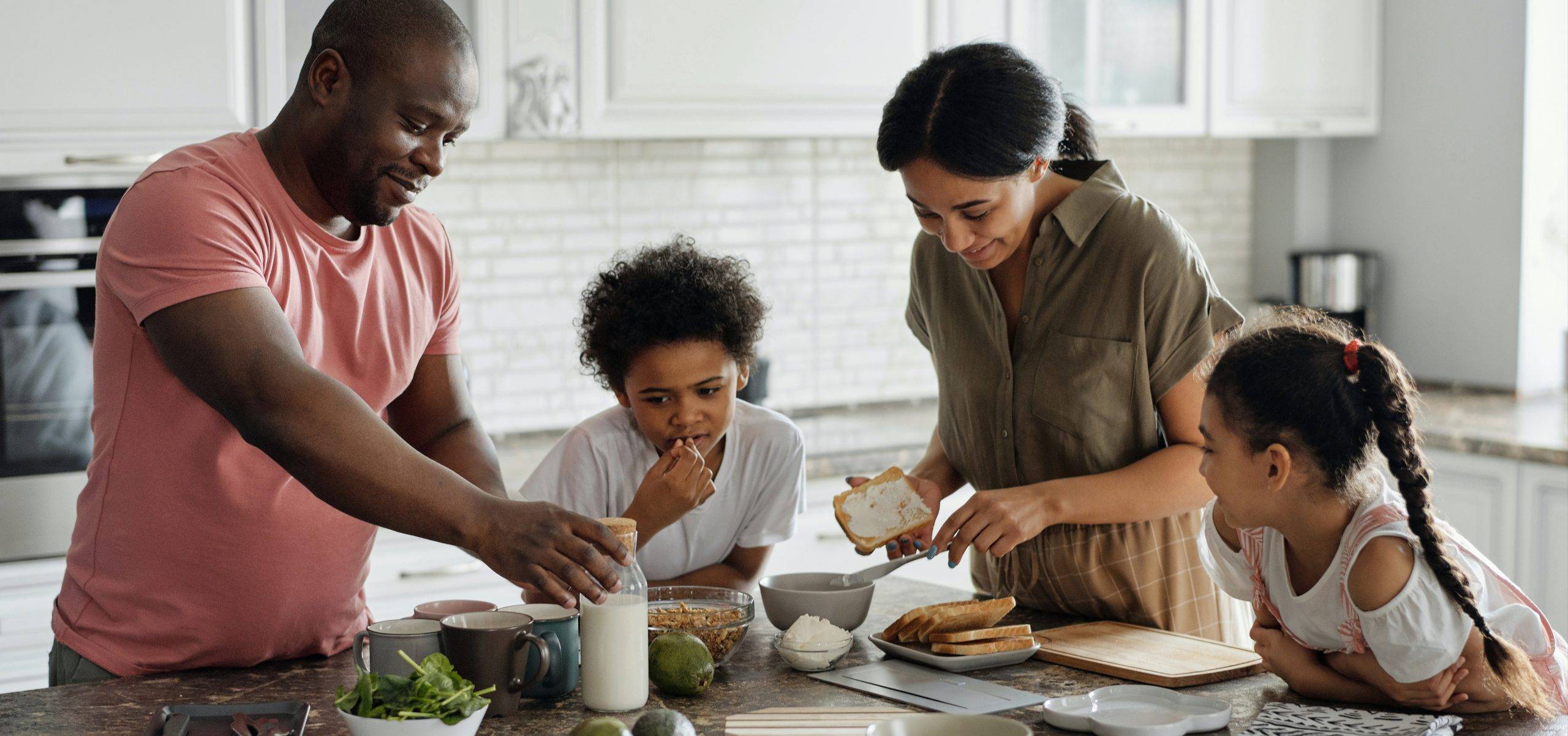With school, sports, and other activities cancelled or put on hold parents are bearing the brunt of a huge change in demands for time and energy.
Routines seem to be a thing of the past with rules changing regularly and the need for lockdowns to come into place with only a moment’s notice. This has often meant that structured rest and self-care has been thrown by the wayside.
Now, for short and occasional periods of time getting out of routines and sacrificing self-care time isn’t the end of the world. However, the regularity and extended nature of these interruptions in our lives mean that these things are being neglected often – and that is having an ongoing effect on every member of the family.
When we are stressed regularly, and for longer periods of time, it starts to affect our behaviour as well as our wellbeing. With lockdown rules creating a very specific type of stress, we need to have a nuanced and multi-pronged method of dealing with it.
Why dealing with pandemic stress is particularly important for children.
We are all suffering the effects of this pandemic, regardless of our age, but as adults, we already have the basis for coping mechanisms in place and benefit from not only understanding on a deeper level why these precautions are necessary but also from already having our baseline set from our own childhood.
It is easy to think, “the kids will be fine, they don’t know how uncertain the world is right now”, or, “they’ll cope, kids, are tough.” Though it is true that most children, especially young children, don’t grasp the magnitude of what we are going through – all that means is that everything has changed for them and they don’t know why, which causes more stress.
There is plenty of research to show that children who experience adversity during childhood can suffer long term effects. Kids who face abuse, neglect, conflict, or trauma can have trouble relating to others, forming friendships, succeeding academically, as well as developing physical and mental health problems in adolescence and into adulthood.
However, it has been shown that protective and nurturing experiences are effective in preventing stress in children and helping them to cope with adversity in the future.
These eleven methods will help you to keep your kids mentally and emotionally safe and strong during these trying times that we have found ourselves in.
1. Connect within the family unit
This may seem like an obvious thing but it is easily overlooked. When we are staying home and spending a lot of time physically with one another it can be easy to neglect being together emotionally.
Make time to talk to one another, listen actively, and create time for play without distractions. Plan on activities to do together, rather than things that will keep them entertained alone.
Working from home does form a challenge when it comes to this. See if you can take regular structured breaks from work to interact with your child. This shows them that not only are you there for them but making an effort to engage. An added bonus is that it gets you up and out of your chair
Knowing that they are valued, loved unconditionally, and are worth making the effort for has a huge effect on children’s wellbeing.
2. Help them stay in touch with friends
Kid’s can lose social skills and friendships quicker than adults, so we must ensure that they continue to interact with kids their own age and maintain the friendships they have formed already.
Depending on your restrictions, you could organize outside and social distanced game or form a bubble with another close family who you know are also following safety guidelines.
If this isn’t an option, then getting kids to connect online through video chats as well as fun activities like games is a good support option.
Interacting with peers allows kids to decompress, lower stress, as well as maintain those social connections and learn from their friends how other families are dealing with the pandemic.
3. Take the opportunity to teach children about helping others
While helping others is a lesson everyone should learn and practice regularly, using the time we are spending at home to sort out old toys and clothes for donation, work as a team to spring clean, or build something together can help kids build empathy and deepen their understanding of others needs.
When we do something that benefits the whole community, even when it isn’t fun for us personally, we build on that community and strengthen social ties and responsibility – all great lessons for children to learn.
4. Help them stay involved in clubs and teams
It may seem impossible to have a club meeting when in-person meetups aren’t safe, but meeting online supports many of the benefits that meeting in person does.
Special interest clubs like fishing or hiking, book clubs or video gaming groups, as well as pursuits like painting or crafting help kids create a community of their own. It promotes a group support network, personal character development, and can even help them with their academic success.
5. Keeping in touch with adults
The influence of teachers, aunts and uncles, and grandparents on the developing brain is huge. When we give children these adult role models, they learn how they are expected to act as they grow up. In addition to having a positive influence on their own merits, extended family members and trusted adults help form a support network to who the child can turn in times of stress or just to talk about problems. This can help the child to feel more supported and loved, as well as providing a little relief for parents who are working more or have other obligations.
6. Keep kids taking part in their hobbies
Just because there’s a pandemic doesn’t mean kids should drop their hobbies. Hobbies can teach kids resilience, provide them with leisure time, and most importantly – stop them from getting bored. Help kids to discover hobbies they can enjoy at home. Whether this is painting, writing, photography, an instrument, or a sport it can provide invaluable development and entertainment.
7. Keep everyone on their toes
Being physically active is important not only to your physical health but to your mental health too. By getting up and getting the heart pumping you promote mood boosts, physical health, and entertainment. This doesn’t mean you have to start a callisthenics family workout in the lounge room every day – it can mean playing tag in the back yard, playing active video games, learning yoga, or just a socially distanced bike ride through the park.
8. Make time for rest
When we are all staying home it might seem unnecessary to set aside time for rest, but when we abandon routine and relax all of the time it can actually create more stress.
When we binge watch tv or play video games for days on end, we end up not actually relaxing during those activities. Similar to an all you can eat buffet – once you’ve eaten your fill and you go back for more just because you can, the food is not as enjoyable and you end up feeling sick.
Set aside time for free play, relaxation, and rest. When we vary our days around productivity and rest time, we actually get the full benefit of that rest.
9. Create new routines
With the loss of external routines, it can be easy to let breakfast time, bedtime, and what to do in between, slip. By creating a routine and sticking to it, it tells kids that they’re safe. It can also help reduce arguments, boredom, and worry.
Work together to make a routine that works for everyone. The most basic of these routines can be a decision on how to go to bed every night. Maybe you decide to brush your teeth, read the next chapter in your book together and list three things you enjoyed from the day before saying goodnight.
Having little rituals like this can help with good sleep and good mental health, not to mention preventing bedtime tantrums because when kids know what to expect they are less stressed about doing it.
If your kids now require school from home, you can integrate this into your routine planning and help kids succeed academically by supporting their new way of schooling.
10. Be realistic – and compassionate – about schooling
Learning online can be difficult, but especially so for kids who have not experienced it before. It is a learning curve for parents too so having a routine and expectations set out at the start of the day makes it easier for everyone.
Remember, this is a difficult time for all involved including teachers. Know that your child is getting the best possible education while staying safe. Standards may change, grades may fall, but helping your child through a global crisis and maintaining their learning and wellbeing is more important than a letter grade.
Take the opportunity to teach them things they wouldn’t necessarily learn in the classroom. For example cooking, dancing, and gardening can help them apply math’s skills, motor skills, and patience. Read with your child daily. Not only is this a fantastic bonding experience it helps them with their reading comprehension, imagination, and – if you’re reading out loud – their verbal skills.
11. Stay Safe and Healthy
By keeping your home clean and adhering to the protection measures in place you are helping to stay safe. There is more that you can do though. Take this opportunity to talk to your kids about staying healthy, eating nutritiously, and looking after our bodies.
Keeping our bodies strong also means keeping our mind strong. So, by talking openly and communicating, creating clean and organized spaces for work and play, and checking in emotionally with each other regularly we teach kids to look after their mental health as well as their physical health.
Remember, every family is different.
Just because other families bought new devices for everyone in the family, or new bikes for the kids, or are cooking extensive lunches every day doesn’t mean your family has to do those things too.
Many families already do the majority of the things discussed here, but with the added pressure of restrictions and changes to their lives too, parents may be finding it harder than they used to – and that’s ok.
We are all learning how to deal with the changes this virus has brought, so take the opportunity to implement some of the things discussed here. All in all, helping your kids feel loved and supported is the highest priority – everything else can be worked out as we go.





